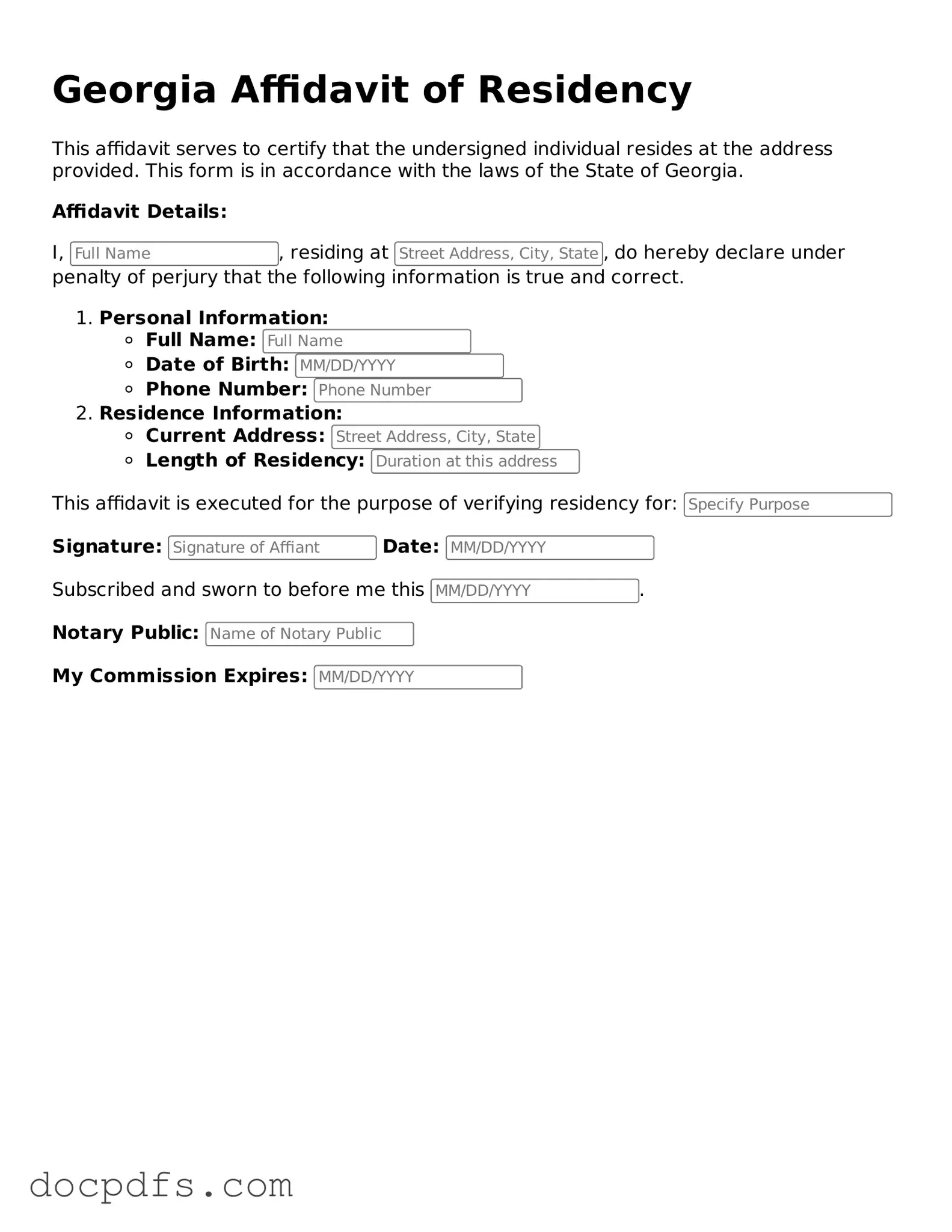Free Georgia Affidavit of Residency Form
The Georgia Affidavit of Residency form is a legal document used to verify an individual's residence in Georgia. This form is often required for various purposes, such as enrolling a child in school or obtaining certain public benefits. By completing this affidavit, individuals can provide proof of their living situation to relevant authorities.
Open Affidavit of Residency Editor Now

Free Georgia Affidavit of Residency Form
Open Affidavit of Residency Editor Now

Open Affidavit of Residency Editor Now
or
⇓ Affidavit of Residency
Finish this form the fast way
Complete Affidavit of Residency online with a smooth editing experience.